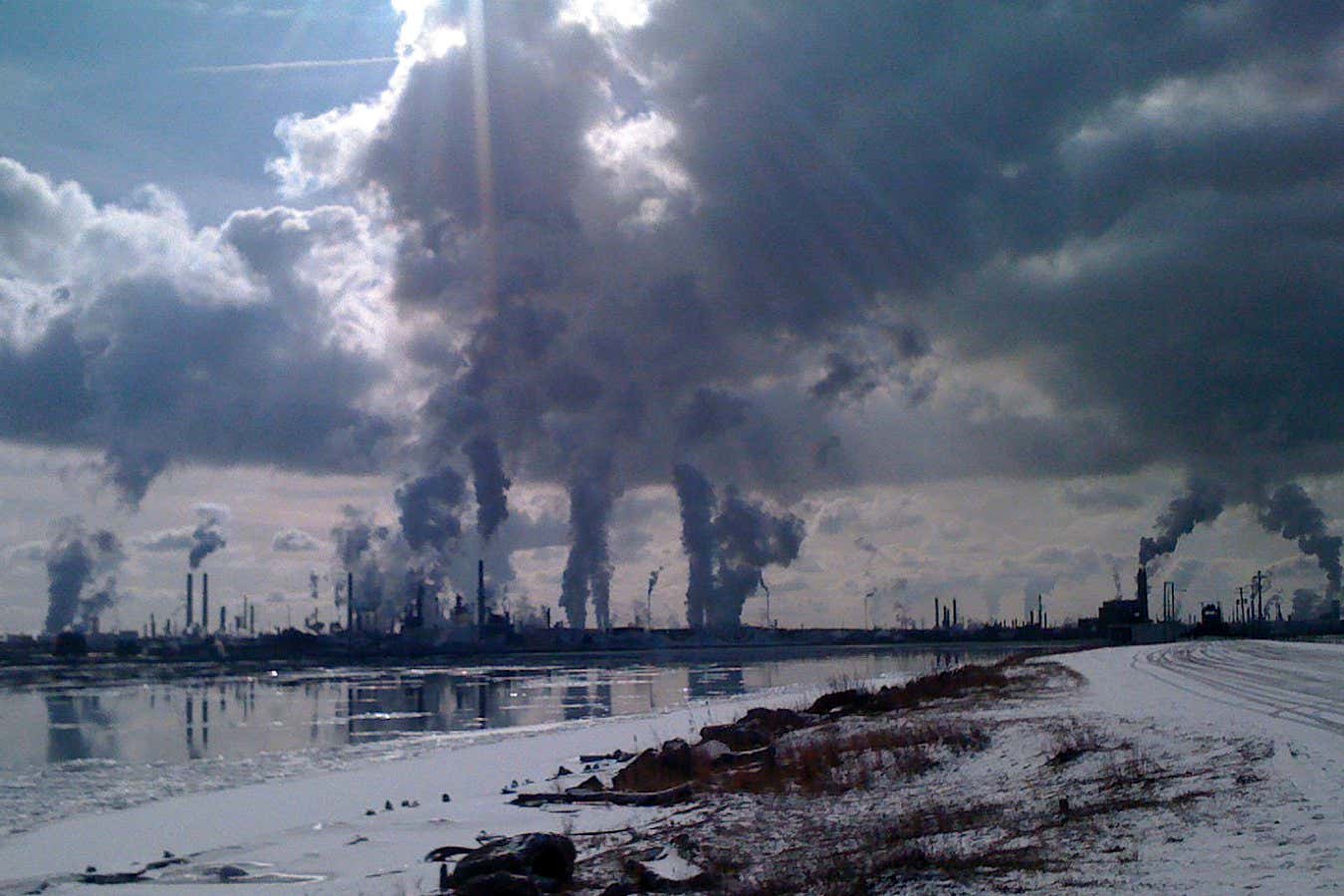Plumes of pollution from big factories can make it snow


Factory aerosols can transform the clouds above
Getty Images/iStockphoto
Plumes of pollution from large factories can trigger snowfall and leave holes in clouds that stretch over large areas, satellite images have revealed.
It has long been known that tiny particles of pollutants like soot, known as aerosol pollution, can affect clouds in many ways. Water vapour can condense on pollutant particles, triggering cloud formation, and pollutants can also alter the properties of existing clouds.
Advertisement
While studying these effects, Velle Toll at the University of Tartu in Estonia noticed that there were sometimes holes in clouds downwind of major pollution sources. He and his colleagues have now analysed thousands of satellite images of North America and Eurasia and found 67 places where this effect can be seen, during the correct atmospheric conditions.
Weather radar confirmed that these events were causing snowfall. In the biggest instance the team found, up to 15 millimetres of snow fell over a 2200-square-kilometre (850-square-mile) area.
This happens because pollutant particles cause supercooled water droplets in clouds to freeze around them, producing ice crystals that grow into snowflakes, says Toll. “And if we have water coming out of the cloud as snow, then we end up with less clouds.”
In the absence of any particles, water droplets in clouds can stay liquid even when the air is as cold as -40°C (-40°F).

This satellite image shows reduced cloud cover downwind of a copper smelter in Canada
Velle Toll
The 67 pollution sources the team found are mostly oil refineries and factories producing metals, cement or fertilisers. But surprisingly, the researchers occasionally saw a similar effect near four nuclear power stations that don’t produce any aerosol emissions.
This might be because the warm air rising from these power stations is lifting up aerosol pollution from elsewhere, but the team hasn’t confirmed this. “We don’t have a definite explanation for that,” says Toll.
In theory, the aerosol effect could be used to deliberately trigger snowfall, but it would only work where clouds of supercooled liquid water droplets are already present, says Toll.
Topics:
